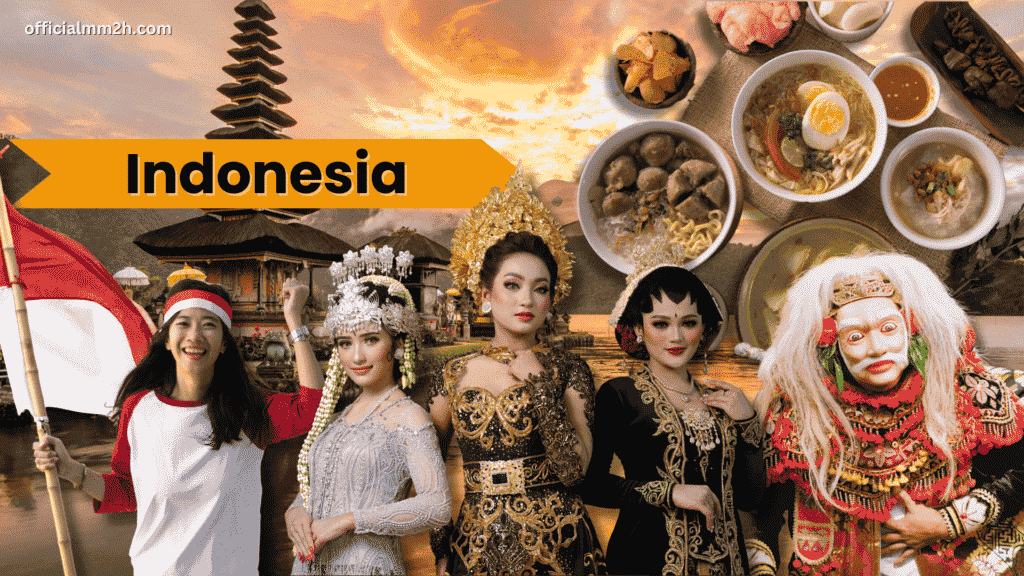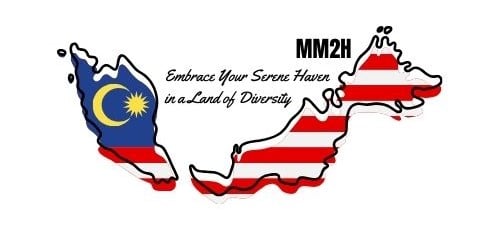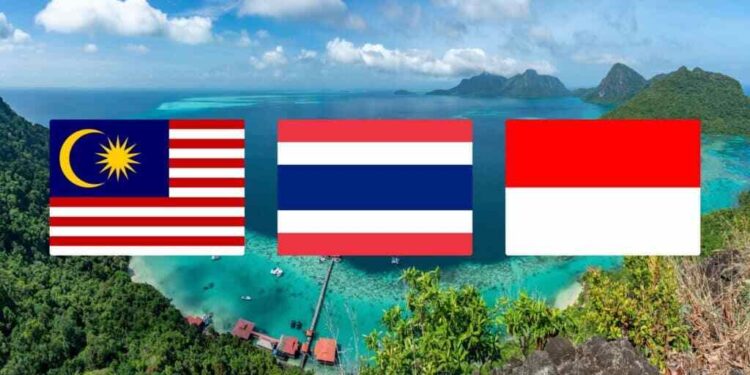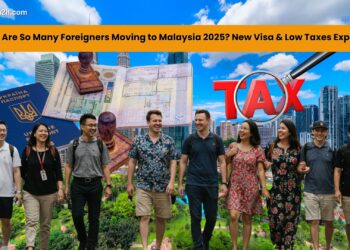Comparing Malaysia MM2H vs Thailand LTR vs Indonesia Second Home Visa Options
Figuring out the best visa for an extended stay in Southeast Asia can feel like navigating a maze. I remember combing through endless options, weighing Malaysia’s MM2H against Thailand’s LTR and considering Indonesia’s Second Home Visa among others.
In this post, I’ll dive into each program—highlighting their unique benefits and how they compare to one another. Let’s dive in!
Key Takeaways
- Malaysia’s MM2H program lets you stay with a simple rule of 60 days per year. You can live there long-term and might get to stay forever if you invest enough money.
- Thailand’s LTR visa targets different types of foreigners, offers tax breaks, and lets you come and go many times. It has options for both work-life and retirement.
- Indonesia’s Second Home Visa needs an upfront cash investment but offers benefits like longer stays and helps from experts in investing.
Overview of Malaysia’s MM2H Program

Malaysia’s MM2H program invites people from all over to live there long-term. It makes it easy for anyone looking to move, with rules that are simple to follow and perks like living in Malaysia without having to work there.
Flexible Physical Presence
I need to spend just 60 days a year in Malaysia under the MM2H program. This rule is quite easy for many people. You can live, work, or travel elsewhere most of the time. The age to join has also dropped to 30 years old now.
Living in Malaysia part-time gives me freedom I didn’t know I needed.
This visa program makes it simple for folks like me who love traveling but also want a home base in Asia. It’s nice knowing I have that flexibility without having to commit full-time right away.
Path to Permanent Residency
Living in Malaysia for a long time is something I think about. The MM2H program makes it easier. If you can put MYR 5 million in a bank here, they let you stay forever. It’s like your money opens doors to make Malaysia your home.
But if you do all this, Malaysia might say, “Okay, stay as long as you like.” To me, that sounds pretty cool because then I can call this place my real home.
Examination of Thailand’s Long-Term Resident (LTR) Program

Thailand’s Long-Term Resident Program is a way for people from other places to live in Thailand for a long time. This program offers special benefits, like being able to come and go many times and getting some money off on taxes.
Foreigner Categories
Thailand’s LTR visa welcomes different types of foreigners. It includes rich folks who want to live there, retirees looking for a sunny place, digital nomads working on their laptops, and skilled pros.
Each group gets neat benefits like owning land or not having to check in every 90 days.
I find this really smart because it means Thailand wants all sorts of people. They’re making it easier for everyone from young techies to retired couples to call Thailand home. This way, the country becomes a mix of talents and experiences.
Privileges of Thailand Golden Visa Holders
I get to skip the usual 90-day reports at the immigration office, which is a huge win for me. It’s one of those things that make living here smoother. Plus, I have access to different plans with benefits and costs that vary.
For instance, the Elite Easy Access gives me five years here, and I can renew it for another five without needing to stay in Thailand all year round. And if retirement is what you’re looking at, there’s a program that lets you stay for five years too, extendable by another five.
You just need some money in a Thai bank or proof of yearly income.
The freedom and flexibility offered by Thailand’s golden visa programs not only simplify residency but genuinely enrich my life here.
Multiple Entry Renewable Visa
Thailand’s Golden Visa comes with a cool perk called the Multiple Entry Renewable Visa. This means I can leave and enter Thailand as many times as I want without trouble. It’s great for people who love to travel or need to go in and out of the country often.
The visa is good for five years, but the best part? When those five years are up, it’s easy to renew it for another five years. No more worrying about redoing paperwork every few months.
The Elite Easy Access option catches my eye because of its simplicity and benefits. There’s no requirement to stay in Thailand all year long, which matches my lifestyle perfectly. Whether I’m there for work or just enjoying retirement early, this flexibility is a game-changer.
Plus, thinking ahead, if I choose retirement later on, Thailand has special visas for that too.
Tax Reductions
Living in Thailand with a long-term resident visa has its perks, and one of them is paying less tax. This deal sounds pretty sweet, right? I get to enjoy the beauty of Thailand and keep some money in my pocket.
They made it simple for people like me who don’t want the headache of big tax bills.
I found out that this visa helps reduce taxes on money I make from other countries. This means I can work online or have investments outside Thailand and not worry too much about high taxes.
It’s a smart move for digital nomads or anyone working internationally. Plus, it makes Thailand an even better place to call home for a while.
Analysis of Indonesia’s Second Home Visa Options

Indonesia’s Second Home Visa program is all about inviting people who want to invest or retire in this beautiful country. It asks for some cash investment and other needs but gives many cool perks like living there a long time without trouble.
Minimum Investment Requirements
For getting into Indonesia’s Second Home Visa, folks need to put their money into the country. It starts with a certain amount of cash that must go into Indonesia. This shows they are serious about staying for a while.
Putting money in means buying property or investing in local projects. It’s not just any small change; we’re talking about a chunk of money here.
This part is cool because it opens doors for people who want to make Indonesia more than just a vacation spot. Sure, it sounds like a lot, but think of what you get in return—the chance to be part of this beautiful place for longer than most people dream of.
And let’s not forget, if someone goes big and decides to deposit MYR 5 million, Malaysia might even give them permanent residency status! That’s a huge deal for anyone looking at making their stay long-term.
Other Requirements
To get the Indonesian Second Home Visa, people need to follow some rules. They might have to be a certain age. This is like the rule changes in Malaysia’s MM2H program. Also, if they want to bring family members with them, there are special rules for that too.
The money part is important as well. People must show they have enough money to join this program. This is something we see in both the Malaysia and Thailand visa programs too. How long you can stay and how often you need to be in Indonesia are big deals here, just like in Malaysia and Thailand’s programs.
Benefits of the Indonesian Golden Visa Program
I found out the Indonesian golden visa program is quite a deal. It asks for less money upfront, only about US$130,000. This makes it easier for folks like me to think about moving there or investing.
They also offer help from experts who speak many languages and know a lot about how to invest in places around the world. This means I can get advice in my own language and make smart choices without feeling lost.
This program has some cool perks too. People say it’s not just about staying in Indonesia but also about making your life better there with investment opportunities that come along with the visa.
Plus, having someone to guide you through the process is like having a friend who knows all the ins and outs, which sounds pretty good to me.
Comparative Evaluation of Malaysia MM2H vs Thailand LTR vs Indonesia Second Home Visa

Now, let’s compare these three options. They each have different rules and perks that might suit what you’re looking for.
Similarities
The MM2H, LTR, and Indonesia’s Second Home Visa all let you bring family. This includes parents and in-laws. You can stay for a long time in these places without moving away. They have rules about how many days you must be there each year.
But now, they ask you to be there less than before.
All three programs changed their money rules too. Before, you needed to show you make or have a certain amount of money. Now, it’s easier for more people to join these programs. If you put a lot of money into these countries, they might let you stay as a permanent resident.
This is great news if you want to live in Malaysia, Thailand, or Indonesia for a long time.
Differences
Okay, so let’s talk about how these visa options are not the same. Malaysia’s MM2H program is cool because you don’t have to stay there much. Just 60 days a year and you’re good. Plus, if you have enough money, like MYR 5 million, they might even let you live there forever as a permanent resident.
That’s not something you see every day.
On the other hand, Thailand’s Long-Term Resident (LTR) thing focuses more on what kind of foreigner you are. They give some nice perks like paying less tax and letting you come and go as many times as you want without hassle.
And Indonesia? You need to put in some cash upfront for their Second Home Visa but it does open up benefits that make staying there worth your while.
I find it interesting how each place has its own way of welcoming people from other countries. They all offer a home away from home but in their own unique style.
Conclusion
So, we looked at Malaysia’s MM2H, Thailand’s LTR visa, and Indonesia’s Second Home offer. Each has its perks. Malaysia lets you bring parents, spouse and children as dependents. That’s pretty cool for families.
Thailand gives tax breaks and land ownership changes. Sounds great for savings and settling down! And Indonesia? A lower deposit catches the eye of many looking to move.
Comparing these, it’s clear no one-size-fits-all answer exists. Your choice depends on what you value most: family inclusion, financial benefits, or easy entry requirements.
Deciding where to call your second home is a big step. With these options in Southeast Asia, there’s plenty to consider but also lots to gain wherever you land.




